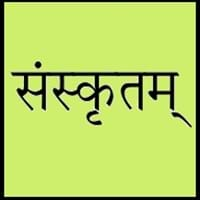Sanskrit vs Urdu
Countries
India
India, Pakistan
National Language
India
Pakistan
Second Language
Not spoken in any of the countries
Pakistan
Speaking Continents
Asia
Asia, Oceania
Minority Language
Not spoken in any of the countries
India
Regulated By
Not Available
National Council for Promotion of Urdu Language, India, National Language Authority, Pakistan
Interesting Facts
- Sanskrit language has highest number of vocabularies than any other language.
- Sanskrit Language has proved to help in speech therapy, also it increases concentration and helps to learn maths and science better.
- Urdu is a language of beauty and grace, that adds meaning to prose and charm to poetry.
- Different languages such as Arabic, Persian and Turkish gave birth and richness to Urdu.
Similar To
Old German Language
Arabic and Hindi Languages
Derived From
Prakrit Language
Ghaznavid Persian Language
Alphabets in
Sanskrit-Alphabets.jpg#200
Urdu-Alphabets.jpg#200
Scripts
Devanagari
Arabic
Writing Direction
Left-To-Right, Horizontal
Right-To-Left, Horizontal
Hello
नमस्कारः (namaskāraḥ)
خوش آمديد
Thank You
धन्यवादाः (dhanyawādāh)
آپ کا شکریہ
How Are You?
कथमस्ति भवान् (kathamasti bhawān)
آپ کیسے ہیں؟
Good Night
शुभरात्री (shubharātrī)
گڈ نائٹ
Good Evening
शुभः सायंकालः
سلام علیکم
Good Afternoon
शुभ दुपार
گڈ آفٹر نون
Good Morning
सुप्रभातम् (suprabhātam)
گڈ مارننگ
Please
कृपया (kripayā)
براہ مہربانی
Sorry
कृपया क्षम्यताम् (kripayā kshamyatām)
معاف کرنا
Bye
पुनः मिलामः(punah milamah)
الوداع
I Love You
त्वामनुरजामि (twāmanurajāmi)
مجھے تم سے محبت
Excuse Me
कृपया क्षम्यताम् (kripayā kshamyatām)
معاف کیجئے گا
Dialect 1
Not present
Dakhini
Where They Speak
Not Available
India
How Many People Speak
Not Available
Dialect 2
Not present
Hyderabadi Urdu
Where They Speak
Not Available
India
Dialect 3
Not present
Rekhta
Where They Speak
Not Available
South Asia
Speaking Population
Not Available
Second Language Speakers
Not Available
Native Name
संस्कृतम् (saṃskṛtam)
اُردُو
Alternative Names
Not Available
Bihari
French Name
sanskrit
ourdou
German Name
Sanskrit
Urdu
Pronunciation
[səmskr̩t̪əm]
[ˈʊrd̪u]
Ethnicity
Not Available
Not Available
Origin
2000 B.C.
12th Century CE
Language Family
Indo-European Family
Indo-European Family
Subgroup
Indo-Iranian
Indo-Iranian
Early Forms
Vedic Sanskrit
No early forms
Standard Forms
Sanskrit
Modern Standard Urdu
Language Position
Not Available
Signed Forms
Not Available
Signed Urdu
Scope
Individual
Individual
ISO 639 6
Not Available
Not Available
Glottocode
sans1269
urdu1245
Linguasphere
No data available
59-AAF-q
Language Type
Ancient
Living
Language Linguistic Typology
Subject-Object-Verb
Not Available
Language Morphological Typology
Synthetic
Fusional
Sanskrit and Urdu Language History
Comparison of Sanskrit vs Urdu language history gives us differences between origin of Sanskrit and Urdu language. History of Sanskrit language states that this language originated in 2000 B.C. whereas history of Urdu language states that this language originated in 12th Century CE. Family of the language also forms a part of history of that language. More on language families of these languages can be found out on Sanskrit and Urdu Language History.
Sanskrit and Urdu Greetings
People around the world use different languages to interact with each other. Even if we cannot communicate fluently in any language, it will always be beneficial to know about some of the common greetings or phrases from that language. This is where Sanskrit and Urdu greetings helps you to understand basic phrases in Sanskrit and Urdu language. Sanskrit word for "Hello" is नमस्कारः (namaskāraḥ) or Urdu word for "Thank You" is آپ کا شکریہ. Find more of such common Sanskrit Greetings and Urdu Greetings. These greetings will help you to be more confident when conversing with natives that speak these languages.
Sanskrit vs Urdu Difficulty
The Sanskrit vs Urdu difficulty level basically depends on the number of Sanskrit Alphabets and Urdu Alphabets. Also the number of vowels and consonants in the language plays an important role in deciding the difficulty level of that language. The important points to be considered when we compare Sanskrit and Urdu are the origin, speaking countries, language family, different greetings, speaking population of these languages. Want to know in Sanskrit and Urdu, which language is harder to learn? Time required to learn Sanskrit is 20 weeks while to learn Urdu time required is 44 weeks.





